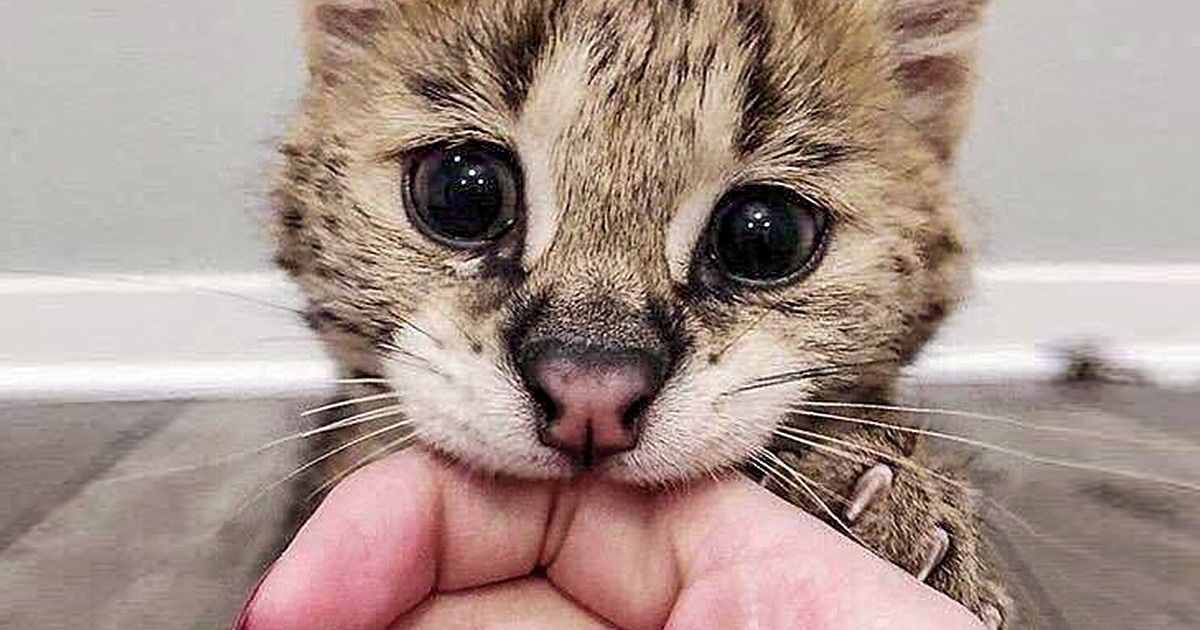I Refuse to Host My Sister—I Don’t Care If She’s Homeless With 3 Kids


Cats have always been portrayed as mysterious animals that don’t care about their owners, and only really care about themselves. Sometimes, it might even seem that they like to be away from everything and that the only thing they do is sleep all day long. But no matter how absent they may seem to be from this world, they’re always aware of what’s going on around them. That’s especially true when it comes to their owner and their own emotional state. The pleasure of being with these animals, which are loved by a large part of society, comes with some interesting benefits and most of them are related to the fact that they help us find peace of mind.
That’s why today, Bright Side would like to show you what science has to say about all the benefits of sharing your house with a cat.
“Purrrrrr” is the distinctive sound that cats make when they purr. This is one of the ways they have to communicate with their owner and other cats, but they make this noise for various reasons. Sometimes it’s because they’re hungry, because something hurts them, or even because they’re afraid or upset. On the other hand, purrs also happen when cats are comfortable and calm, when they’re being petted, or when they want to express their friendship and love. In any case, the frequencies of these sounds can, in some cases, match healing frequencies. That’s why purrs are said to be a sort of therapy for cats and maybe even for the people around them. It might be a way to relieve the cat’s discomfort and to make humans and cats feel more relaxed.
In addition to potentially being able to reduce the risk of heart disease, a cat’s purr could also improve the lung function of people suffering from respiratory problems. Their purring has the ability to help you treat your stress and calm you down in the event of a nervous breakdown. Purring can occur at a frequency of between 20 and 140 hertz. The most common case found in domestic cats is purring at a frequency of between 20 and 50 hertz.
This sound vibration stimulates tissue healing, especially in injuries that affect tendons and muscles in cats. These frequencies also reduce pain and help increase bone density. There’s even a study that determined that living with cats during the first year of your life can decrease the chances of having respiratory and ear infections because contact with pets protects and strengthens your immune system. This, by the way, is also the case for contact with dogs, so if you were trying to choose between one and the other, maybe you just want to adopt both now!
Caressing our pets can be something that brightens up our day and leaves us with a special kind of peace of mind. Research conducted in the past years has determined that owning a cat, or some other pet, could help us relieve the stress and anxiety caused by our daily life. That, in turn, will keep your blood pressure levels at a lower level as well as reduce your heart rate, which will make you feel more relaxed and worry-free. With this knowledge, having a cat at home suddenly becomes one of the best alternatives we have to not feel lonely and to actually help prevent anxiety and stress in a natural way.
A study found that cats are considered to be a constant source of companionship (83% of participants), are said to always be there for them when needed (67% of participants), and can be found to provide emotional support in times of distress. One more plus that another study has determined is that having pets at home can manage to raise their owner’s self-esteem and raise their level of endorphins. These molecules, by the way, are related to the way you experience happiness and well-being. That is why, by petting cats (which they love and that is just a fact proven by science), by playing with them, or just by knowing that they’re keeping us company in silence, we can chase away sadness. It’s no wonder why cats have that special power of making us feel more relaxed the minute they enter the room.
We could be inclined to believe that our cat sleeps in our bed to get more warmth and comfort. But actually, there are other reasons for them to do that. When it’s time to sleep, they also look for affection and protection. Being with us makes them feel safe. It’s also a way to rest a bit from the state of alertness they are in all day. If you suffer from a lack of sleep due to the intensity of your routine’s hustle and bustle, try placing your cat on your forehead for 5 minutes to help yourself let go of the burden of your day.
People who live with cats will be able to say that having these pets at home is an adventure in every sense of the word. Following their pet’s movements and witnessing their expressions and behavior makes owners more cheerful. There are cases in which it’s not possible to have pets at home. However, that doesn’t mean you can’t have any contact with animals. There are other ways to experience similar activities, such as seeing posts online.
Actually, a study determined that watching videos of cats on the internet has become one of the most popular pastimes, due to the emotions that arise after watching them. It seems like these videos can generate a positive state of mind and give more energy to the people who interact with this type of content. Another line of research into Kawaii showed that after enjoying these kinds of pictures and videos, the productivity in a person’s activities increased.
In some cases, people with special types of autism might find it hard to communicate with others. Animal therapy has proven to be one of the most helpful tools to help establish new channels of communication. In part, that’s because patients feel a stronger connection to animals. In the same line of thought, a study found that children who have a pet feel calmer and more sociable than those who don’t. When petting a cat, oxytocin levels could rise and increase the trust and love of the bond. For example, Iris Grace, a child with autism, gets help talking to people from her cat Thula, because her pet gives her a sense of security.
There are a variety of opinions regarding what the fur of a cat actually does and how often it falls out. When having young babies in the house, you might not think it’s a good idea to have a feline sharing the house with them. However, a study found that children under one year old who have a cat as a pet while growing up are less likely to develop allergies. These results suggest that having a pet around early in life could help our bodies refrain from developing an animal allergy later in life. It could also help us deal with other similar problems, like a dust allergy.
Although cats are believed to be very independent, the fact remains that they do like to interact with humans. Actually, a study concluded that many cats prefer to socialize, rather than eat or play with certain objects. By depriving them of these things, after a few hours, most cats chose to seek out humans to receive affection. Only a few preferred to get food instead of cuddles. So much for the legend that cats are lonely beings!
The battle between cat and dog owners is something that probably started when humans first had pets and that could potentially go on forever. However, you might want to consider the following. A study found that people who own dogs are more active, outgoing, and tend to spend more time outdoors. In contrast, those who own cats are usually introverted, stay home more, and spend their time doing more relaxing activities such as watching TV series or reading about various topics, and are more interested in cultural and academic subjects.
That might be why it was determined that cat owners could be more intelligent than dog owners. But keep in mind that this result was solely based on the different personalities and interests of each type of owner, so it’s far from being conclusive.
What do you think about cats and their healing powers? Had you noticed any of these effects before reading this article? What benefit would you add to the list? If you’ve had any healing experience with your cat, we’d love to hear about it in the comments.











